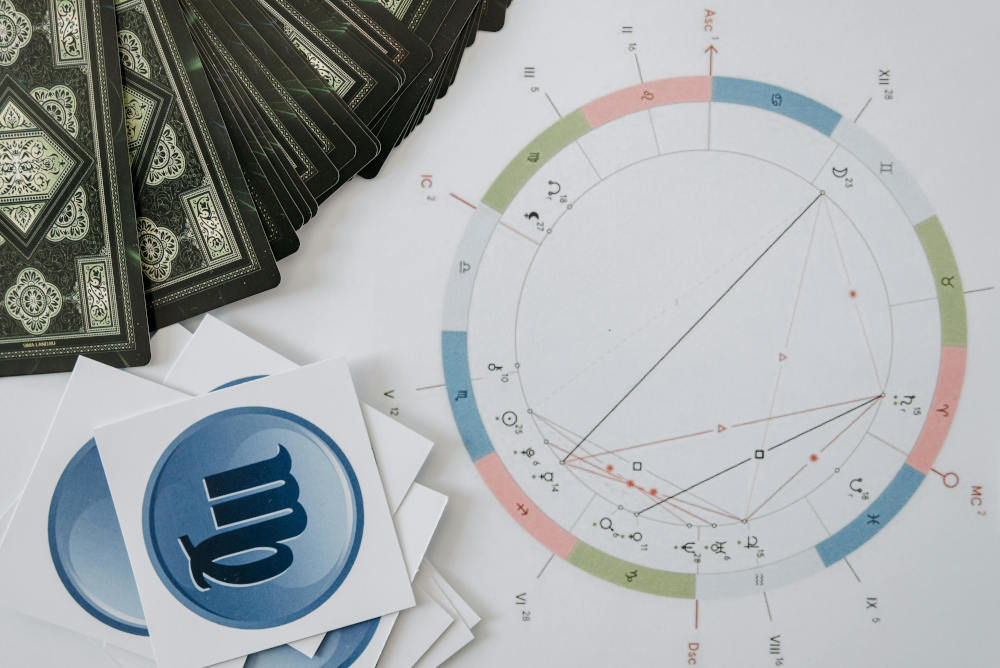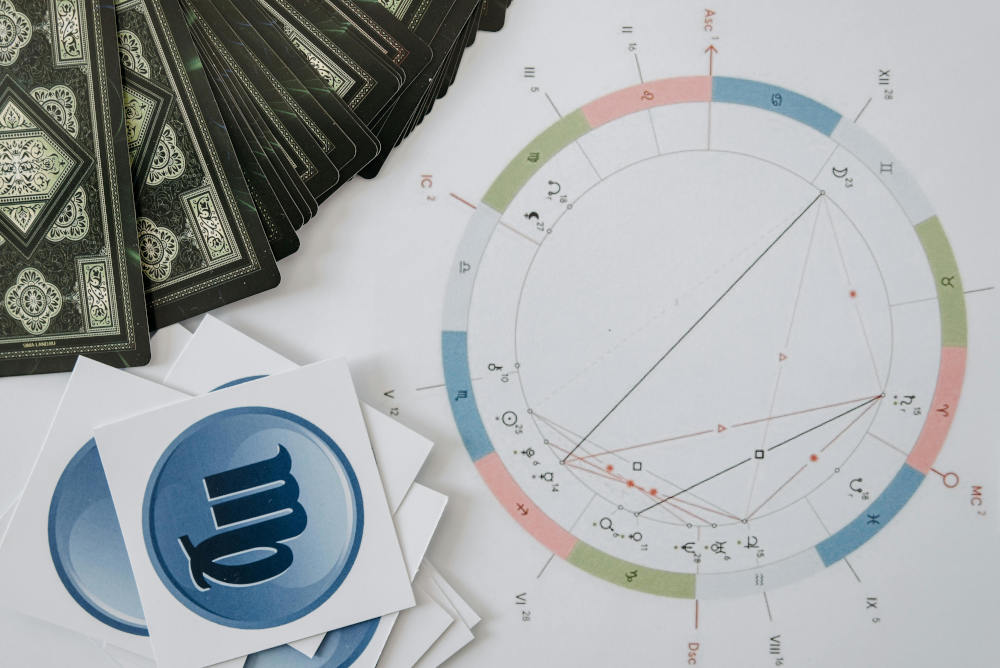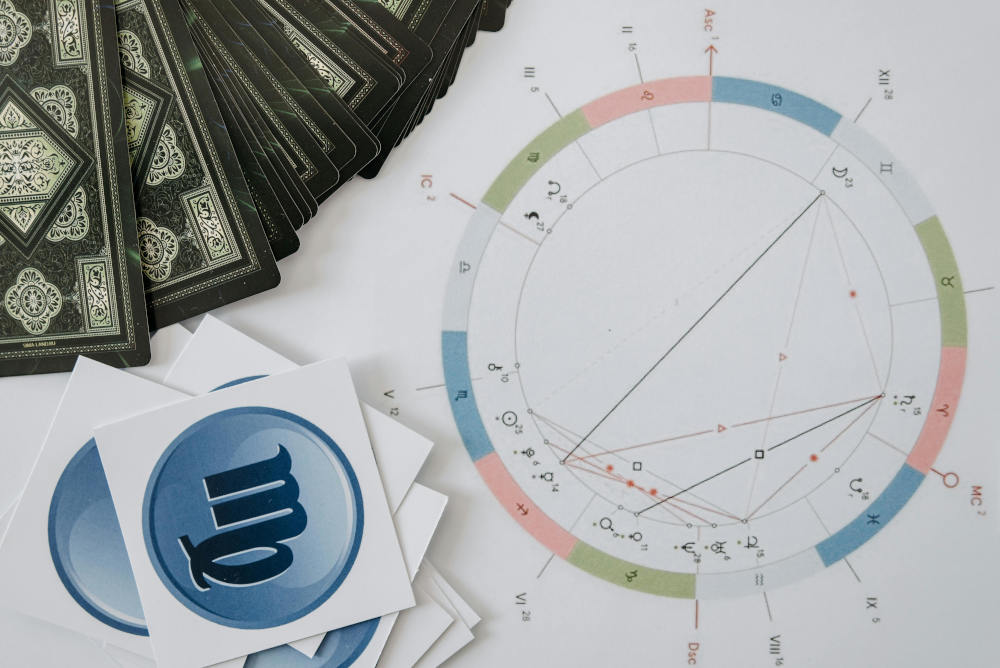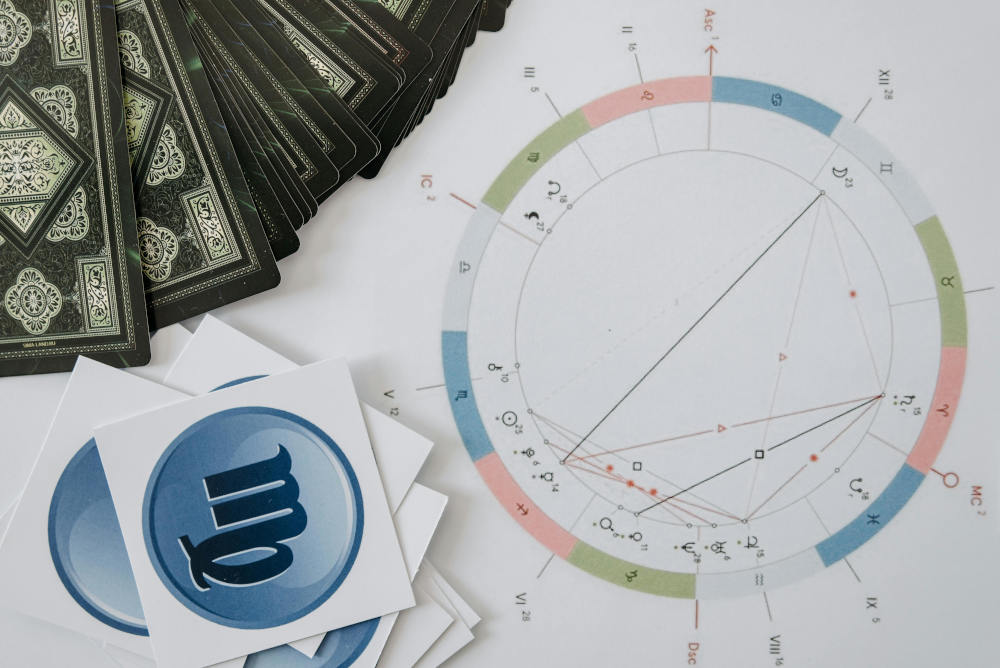
Astrology is often seen as a mystical tool, a way to interpret celestial movements and gain insight into human life. But is astrology pagan? This question isn’t just about definitions—it touches on culture, spirituality, history, and belief systems that have shaped our world for thousands of years.
To answer it, we need to explore where astrology comes from, how it has evolved, and how it intersects with what we call "paganism" today.
Panaprium is independent and reader supported. If you buy something through our link, we may earn a commission. If you can, please support us on a monthly basis. It takes less than a minute to set up, and you will be making a big impact every single month. Thank you!
What Is Paganism?
Before exploring astrology’s relationship to paganism, it’s important to define what "paganism" means.
Historically, pagan was a term used by early Christians to describe those who followed polytheistic, nature-based religions in the Roman Empire and beyond. It often included:
-
Worship of many gods and goddesses
-
Seasonal celebrations like solstices and equinoxes
-
A reverence for the natural world
-
Magic, ritual, and divination practices
Today, modern paganism (often called neo-paganism) includes traditions like Wicca, Druidry, and Heathenry. These spiritual paths are inspired by pre-Christian belief systems and often emphasize a deep connection to nature and ancient wisdom.
What Is Astrology?
Astrology is the study of how celestial bodies—planets, stars, and the Moon—influence human behavior and earthly events. There are many branches, including:
-
Natal astrology (personal birth charts)
-
Mundane astrology (world events)
-
Electional astrology (choosing auspicious times)
-
Horary astrology (answering specific questions)
Astrology isn’t a religion, but it has spiritual elements. It seeks meaning in cosmic patterns and assumes a connection between the microcosm (human life) and the macrocosm (the universe).
Astrology’s Origins: Pagan or Not?
Babylonian Beginnings
Astrology began in ancient Babylon over 4,000 years ago. Early astrologers observed the stars to predict seasonal changes and political events. These predictions were closely tied to the gods worshipped in Mesopotamian religion.
For example, the planet Venus was associated with the goddess Inanna (or Ishtar), a powerful symbol of love and war. The Babylonian sky was a living map of divine activity.
Was this pagan? Yes, by modern definitions. These practices were deeply spiritual and polytheistic.
Egypt and Greece: Divine Patterns
Astrology evolved further in ancient Egypt and Greece. Egyptians connected the stars with gods like Ra and Thoth. The Greeks, who inherited Babylonian techniques, gave astrology its philosophical structure.
Plato and Ptolemy helped establish astrology as a cosmological system in which the heavens influenced the Earth. Greek gods were linked to planets: Mars with Ares, Venus with Aphrodite, and so on.
In these cultures, astrology was inseparable from religion. Interpreting the stars was a way to understand the will of the gods.
So again—yes, astrology had pagan roots.
Astrology and Paganism in the Roman Empire
The Romans blended astrology with their pantheon. Emperors often had astrologers in their courts, and planetary deities were part of everyday worship.
Astrology was seen as both divine and political. Some emperors even outlawed it at times—not because it was unholy, but because it threatened their control.
Astrology thrived in a religiously pluralistic world. It was part of the spiritual fabric of pagan Rome.
Astrology in Christianity and Islam
Here’s where the story gets more complex.
When Christianity became the dominant religion in Europe, it began to distance itself from astrology. The Church condemned it for encouraging fatalism and for trying to predict divine will. Astrology was seen as a relic of pagan superstition.
However, many early Christian scholars (like Thomas Aquinas) allowed for astrology within limits. They argued that the stars could influence the body, but not the soul—leaving room for divine free will.
Islamic scholars during the Golden Age preserved and advanced astrology. They translated Greek and Persian texts and built observatories to track the stars. But like Christians, many Islamic theologians warned against using astrology to override God’s will.
In both religions, astrology was tolerated more as science than as spiritual practice. Its pagan roots were acknowledged but reinterpreted.
Astrology in the Occult Revival
Fast forward to the Renaissance and the 19th-century occult revival. Astrology came back into the Western spiritual scene, often hand-in-hand with:
-
Tarot
-
Alchemy
-
Hermeticism
-
Magic
These systems were influenced by pagan thought, particularly Hermeticism, which taught that the universe was alive, symbolic, and interconnected.
During the 20th century, astrology became a tool of personal and spiritual growth, aligning with New Age and neo-pagan movements. Many Wiccans and modern pagans now use astrology in their rituals and celebrations.
Modern Paganism and Astrology Today
Today, astrology plays a major role in many neo-pagan and New Age practices. It is used to:
-
Choose dates for rituals (based on moon phases or planetary alignments)
-
Understand personal energy (via birth charts)
-
Honor planetary deities
-
Interpret seasonal festivals (like solstices and equinoxes)
Wiccans often cast spells when the Moon is in a favorable phase or sign. Druids may observe celestial events to mark sacred holidays. Astrological timing is seen as a way to harmonize with the universe.
That said, not all pagans use astrology, and not all astrologers consider themselves pagan.
Is Astrology Inherently Pagan?
Here’s the key takeaway: Astrology has pagan roots, but it’s not exclusively pagan.
It originated in ancient polytheistic cultures, and many of its symbols are tied to gods and natural cycles. It aligns with many pagan values: nature-based wisdom, cosmic connection, and spiritual symbolism.
But astrology is a system that has also been shaped by:
-
Science (astronomy)
-
Philosophy (especially in Greece)
-
Monotheistic cultures (Christianity and Islam)
-
Modern psychology (like Jungian archetypes)
Today, people from all spiritual paths—Christian mystics, atheists, Buddhists, and pagans alike—use astrology in different ways.
Common Misconceptions
Let’s clear up a few misunderstandings:
1. “Astrology is devil worship.”
This idea stems from Christian fears during the Middle Ages. Astrology is not satanic; it doesn’t involve worship of evil entities. It’s a symbolic system that interprets planetary movements.
2. “Astrology is a religion.”
Astrology is not a religion. It can support spiritual beliefs, but it doesn’t require worship, moral codes, or rituals. It’s a tool—like meditation or yoga—that can be applied across belief systems.
3. “All pagans use astrology.”
Not true. Some pagans focus more on mythology, nature, or ancestor worship. Astrology is one path among many in modern pagan practice.
So, Is Astrology Pagan?
The answer depends on how you define “pagan” and how you use astrology.
-
Historically? Yes. Astrology came from pagan cultures that worshipped gods of the sky and Earth.
-
Spiritually? Often. Astrology aligns with pagan ideas of nature, cycles, and cosmic harmony.
-
Exclusively? No. Astrology has transcended religion and is used by people of all spiritual backgrounds today.
If you approach astrology as part of a nature-based, polytheistic path—then for you, astrology is likely pagan.
If you use astrology just to understand yourself or plan your week, without spiritual belief—then it may not be pagan at all.
Final Thoughts
Astrology is a deeply layered practice with ancient roots. Its symbols are drawn from mythologies and philosophies that predate modern religions. While it began in pagan cultures, it has evolved into a spiritual language shared by many belief systems.
The beauty of astrology is that it can be as mystical—or as practical—as you want it to be.
So is astrology pagan? It can be. But more than anything, astrology is a mirror—and what you see in it depends on the lens you choose.
Was this article helpful to you? Please tell us what you liked or didn't like in the comments below.
About the Author: Alex Assoune
What We're Up Against
Multinational corporations overproducing cheap products in the poorest countries.
Huge factories with sweatshop-like conditions underpaying workers.
Media conglomerates promoting unethical, unsustainable products.
Bad actors encouraging overconsumption through oblivious behavior.
- - - -
Thankfully, we've got our supporters, including you.
Panaprium is funded by readers like you who want to join us in our mission to make the world entirely sustainable.
If you can, please support us on a monthly basis. It takes less than a minute to set up, and you will be making a big impact every single month. Thank you.































0 comments